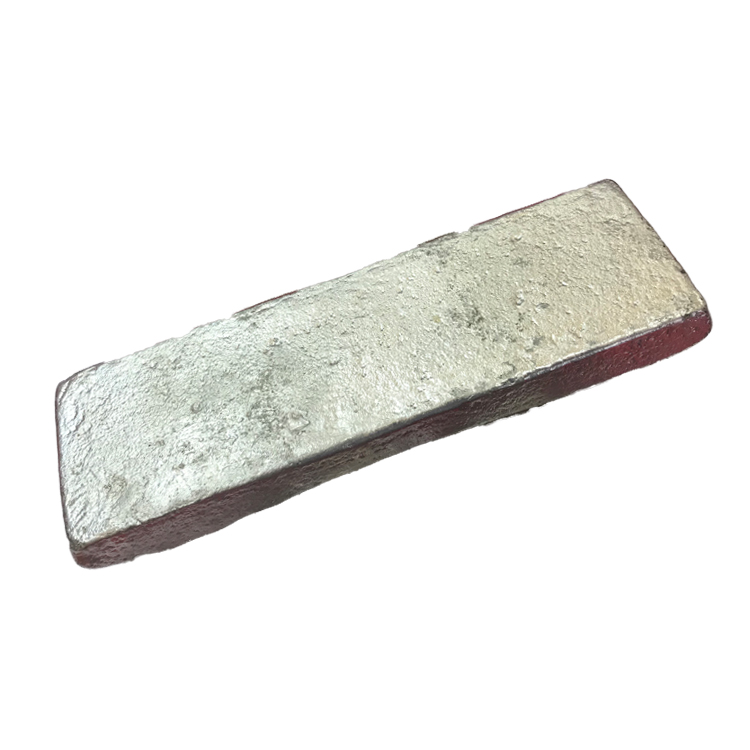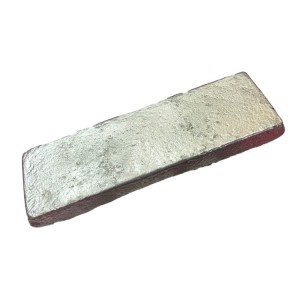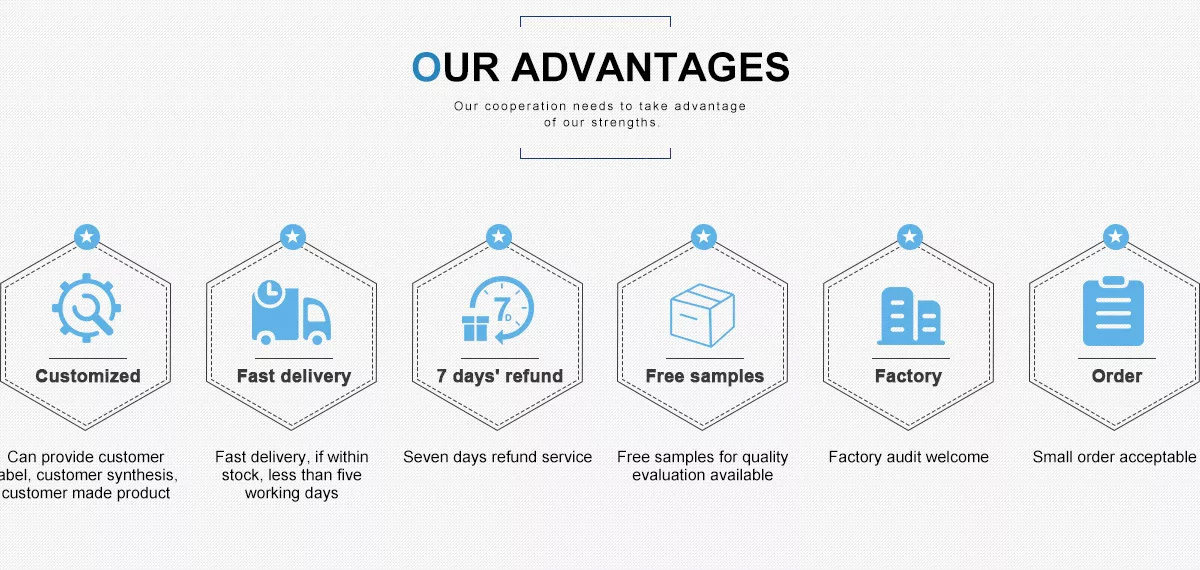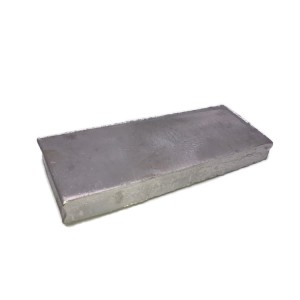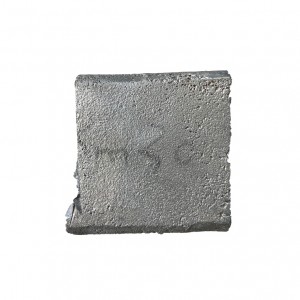Brief introduction
Product Name: Aluminum Erbium Master Alloy Ingots
Appearance: Silvery metallic solid
Processing process: Vacuum melting
Package: 50kg/drum or as you required
| Product Name | Aluminum erbium master alloy | ||||||
| Standard | GB/T27677-2011 | ||||||
| Content | Chemical Compositions ≤ % | ||||||
| Balance | Er | Er/RE | Fe | Ni | Cu | Si | |
| AlEr20 | Al | 18.0~22.0 | ≥99 | 0.10 | 0.01 | 0.01 | 0.05 |
1. Grain Refinement in Aluminum Alloys:
- Improved Mechanical Properties: The primary application of aluminum-erbium master alloys is in grain refinement during the production of aluminum alloys. By introducing erbium, the grain structure of aluminum can be refined, leading to improved mechanical properties such as increased strength, enhanced ductility, and better overall toughness.
- Consistency in Casting: The grain refinement also helps in achieving a more uniform and consistent microstructure during the casting process, which is crucial for producing high-quality aluminum components.
2. High-Temperature Applications:
- Creep Resistance: Aluminum-erbium alloys are used in applications that require enhanced performance at elevated temperatures. The addition of erbium can improve the creep resistance of aluminum, making it suitable for high-temperature applications, such as components in engines or other environments where heat resistance is critical.
- Thermal Stability: The improved thermal stability of aluminum-erbium alloys makes them ideal for use in aerospace and automotive components that operate under high thermal stress.
3. Electrical Applications:
- Conductivity Enhancement: Erbium can be used to modify the electrical conductivity of aluminum alloys, making these materials more suitable for specific electrical and electronic applications where both conductivity and mechanical strength are needed.
- Power Transmission Lines: Due to their enhanced mechanical and electrical properties, aluminum-erbium alloys can be used in power transmission lines, offering both strength and efficient conductivity.
4. Aerospace Industry:
- Structural Components: In the aerospace industry, where weight reduction and strength are critical, aluminum-erbium master alloys are used to produce components that require high mechanical properties combined with light weight. These components can include parts of the fuselage, wing structures, and other critical elements.
- Heat-Resistant Alloys: The enhanced heat resistance of aluminum-erbium alloys makes them suitable for aerospace components that are exposed to high temperatures during flight.
5. Automotive Industry:
- Engine and Transmission Parts: The automotive industry utilizes aluminum-erbium master alloys for manufacturing engine and transmission parts that require improved mechanical properties and high-temperature performance.
- Lightweight Structural Components: The use of aluminum-erbium alloys in lightweight structural components contributes to overall vehicle weight reduction, leading to improved fuel efficiency and performance.
6. Defense and Military Applications:
- High-Performance Alloys: In defense applications, aluminum-erbium alloys are used to produce high-performance components that require superior mechanical strength, thermal stability, and corrosion resistance.
- Armor and Protective Gear: The alloys can also be used in the production of lightweight armor and protective gear, offering a balance between protection and maneuverability.
7. Additive Manufacturing:
- 3D Printing: Aluminum-erbium master alloys are becoming increasingly relevant in additive manufacturing (3D printing) technologies. The refined microstructure and improved mechanical properties provided by erbium make these alloys suitable for producing complex, high-performance components using 3D printing techniques.
-
Aluminum Neodymium Master Alloy AlNd10 ingots m...
-
Aluminum Scandium Master Alloy AlSc2 ingots man...
-
Aluminum Cerium Master Alloy AlCe30 ingots manu...
-
Aluminum Samarium Master Alloy AlSm30 ingots ma...
-
Aluminum Yttrium Master Alloy AlY20 ingots manu...
-
Aluminum Ytterbium Master Alloy AlYb10 ingots m...
